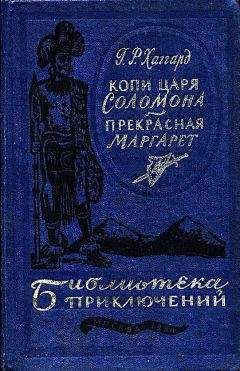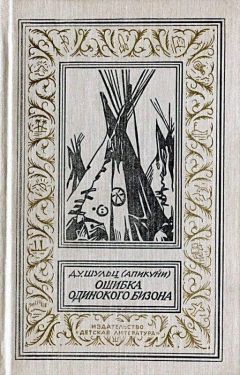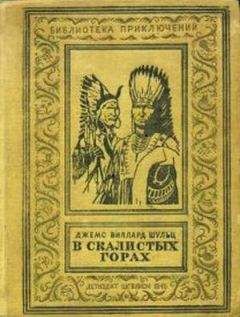H. Haggard - Копи царя Соломона. Английский язык с Г. Р. Хаггардом.
But this was quite a different type of man (но это был совершенно другой тип человека) to the low fellows I had been accustomed to meet (чем те низкие субъекты, которых я привык встречать; low— низкий, невысокий; вульгарный, низкий, грубый; to accustom— приучать, делать знакомым, привычным); he reminded me more of the polite dons I have read about (он больше походил на тех вежливых донов: «он больше напомнил мне о тех вежливых донах», о которых я читал /в книгах/; don— гранд /испанский титул/).
devil [devl], unhung [An'hAN], agony ['xgqnI], accustomed [q'kAstqmd]
Now I know your Delagoa Portugee well. There is no greater devil unhung, in a general way, battening as he does upon human agony and flesh in the shape of slaves. But this was quite a different type of man to the low fellows I had been accustomed to meet; he reminded me more of the polite dons I have read about.
He was tall and thin (он был высок и худощав), with large dark eyes and curling gray mustache (с большими темными глазами и закрученными седыми усами; to curl — виться/о волосах/; curling — вьющийся, закручивающийся; gray — серый; седой). We talked together a little, for he could speak broken English (мы немного поговорили друг с другом, потому что он говорил на ломаном английском; together — вместе, сообща; друг с другом; broken — сломанный, разбитый; ломаный/о языке/), and I understood a little Portugee (а я немного понимал португальский), and he told me that his name was José Silvestre (и он рассказал мне, что его зовут Жузе Силвештра), and that he had a place near Delagoa Bay (и что у него поместье рядом с заливом Делагоа; place — пространство, протяженность; жилище, усадьба, загородный дом); and when he went on next day, with his half-breed companion, he said (и когда он уезжал на следующий день со своим спутником-метисом, он сказал), `Good-bye,' taking off his hat quite in the old style ("До свидания", снимая свою шляпу совершенно по-старомодному = старомодным жестом; style — стиль, слог, манера; манера, линия поведения).
curling ['kq:lIN], mustache [mq'stQ:S], quite [kwaIt], style [staIl]
He was tall and thin, with large dark eyes and curling gray mustache. We talked together a little, for he could speak broken English, and I understood a little Portugee, and he told me that his name was José Silvestre, and that he had a place near Delagoa Bay; and when he went on next day, with his half-breed companion, he said, `Good-bye,' taking off his hat quite in the old style.
`Good-bye, senor (до свидания, сеньор),' he said; `if ever we meet again I shall be the richest man in the world (если мы когда-нибудь встретимся снова, я буду самым богатым человеком в мире), and I will remember you (и я вспомню о вас; to remember — помнить, хранить в памяти; вознаграждать, делать подарок).'
I laughed a little (я немного посмеялся) — I was too weak to laugh much (я был слишком слаб, чтобы много смеяться) — and watched him strike out for the great desert to the west (и /стал/ наблюдать за тем, как он быстро направляется к огромной пустыне на западе; to strike out— набрасываться /с кулаками, с оружием/; быстро двигаться, мчаться), wondering if he was mad, or what he thought he was going to find there (размышляя, уж не сошел ли он с ума, и /о том/, что же он собирался там обнаружить: «или что он думал, он собирается обнаружить там»; mad— сумасшедший, ненормальный; to wonder— удивляться; интересоваться, желать знать).
senor [se'njO:], world [wq:ld], wondering ['wAnd(q)rIN]
`Good-bye, senor,' he said; `if ever we meet again I shall be the richest man in the world, and I will remember you.' I laughed a little — I was too weak to laugh much — and watched him strike out for the great desert to the west, wondering if he was mad, or what he thought he was going to find there.
"A week passed, and I got the better of my fever (прошла неделя, и я победил свою лихорадку = выздоровел; to get the better of smb., smth. — взять верх над кем-либо, превзойти кого-либо, что-либо). One evening I was sitting on the ground in front of the little tent I had with me (однажды вечером я сидел на земле перед небольшой палаткой, которая была у меня с собой), chewing the last leg of a miserable fowl (и жевал последнюю ножку жалкой птицы; to chew — есть, жевать, пережевывать пищу; fowl — домашняя птица/обыкн. курица или петух/) I had bought from a native for a bit of cloth worth twenty fowls (которую я купил у одного туземца за отрез ткани, стоивший двадцати таких птиц; bit — кусок; cloth — ткань/преим. шерстяная/, сукно), and staring at the hot, red sun sinking down into the desert (и /пристально/ смотрел на раскаленное красное солнце, которое опускалось в пустыню; hot — горячий, жаркий, накаленный; to sink — опускаться; садиться /о светилах/), when suddenly I saw a figure, apparently that of a European, for it wore a coat (когда неожиданно я увидел какого-то человека, явно европейца, потому что на нем была куртка; to wear — носить одежду, прическу, украшения и т.п.; coat — пиджак, куртка, пальто и т.п. /верхняя, особ. мужская, одежда/), on the slope of the rising ground opposite to me, about three hundred yards away (на склоне холма: «/постепенно/ возвышающейся местности» напротив меня, на расстоянии около трехсот ярдов; rise — повышение, возвышение, подъем; to rise — подниматься, вставать на ноги; повышаться/о местности и т.п./).
chew [Cu:], fowl [faul], bought [bO:t], cloth [klOT], figure ['fIgq], apparently [q'pxrqntlI], European ["juqrq'pIqn], opposite ['OpqzIt]
"A week passed, and I got the better of my fever. One evening I was sitting on the ground in front of the little tent I had with me, chewing the last leg of a miserable fowl I had bought from a native for a bit of cloth worth twenty fowls, and staring at the hot, red sun sinking down into the desert, when suddenly I saw a figure, apparently that of a European, for it wore a coat, on the slope of the rising ground opposite to me, about three hundred yards away.
The figure crept along on its hands and knees (этот человек полз на четвереньках: «на руках и коленях»; figure — фигура, телосложение, внешние очертания; человек, кто-то, некто), then it got up and staggered along a few yards on its legs (затем он поднялся и прошел, пошатываясь, несколько ярдов на ногах), only to fall and crawl along again (только для того, чтобы упасть и снова поползти). Seeing that it must be somebody in distress (видя, что это должен быть кто-то, попавший в беду; distress — горе, беда, страдание), I sent one of my hunters to help him (я отправил одного из своих охотников помочь ему), and presently he arrived (и вскоре он прибыл), and who do you suppose it turned out to be (и кто, как бы вы думали, это оказался; to turn out — выворачивать/карманы и т.п./; оказаться, обнаружиться)?"
"José Silvestre, of course (Жузе Силвештра, конечно)," said Captain Good.
knee [ni:], stagger ['stxgq], yard [jQ:d], distress [dIs'tres]
The figure crept along on its hands and knees, then it got up and staggered along a few yards on its legs, only to fall and crawl along again. Seeing that it must be somebody in distress, I sent one of my hunters to help him, and presently he arrived, and who do you suppose it turned out to be?"
"José Silvestre, of course," said Captain Good.
"Yes, José Silvestre, or rather his skeleton and a little skin (да, Жузе Силвештра, или, точнее, его кожа да кости: «его скелет и немного кожи»). His face was bright yellow with bilious fever (его лицо было ярко желтым от желчной лихорадки; bile — желчь; bilious — желчный), and his large, dark eyes stood nearly out of his head (и его большие темные глаза прямо-таки торчали из его головы; to stand out — отходить; выдаваться, выступать), for all his flesh had gone (потому что вся его плоть полностью исчезла; flesh — тело, мясо; плоть; to go — идти, ходить; исчезать, уходить окончательно). There was nothing but yellow, parchment-like skin (/от него/ не осталось ничего, кроме желтой, похожей на пергамент, кожи; parchment — пергамент), white hair (седых волос; white — белый; седой, серебристый), and the gaunt bones sticking up beneath (и костей, торчащих из под /кожи/; gaunt — сухопарый, костлявый; to stick /up/ — вытыкать; торчать).




